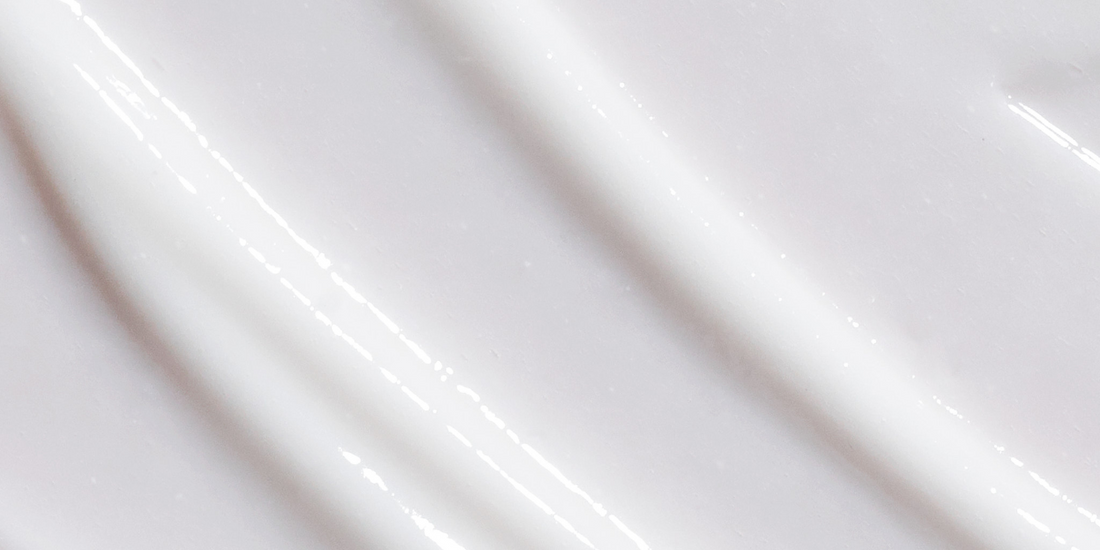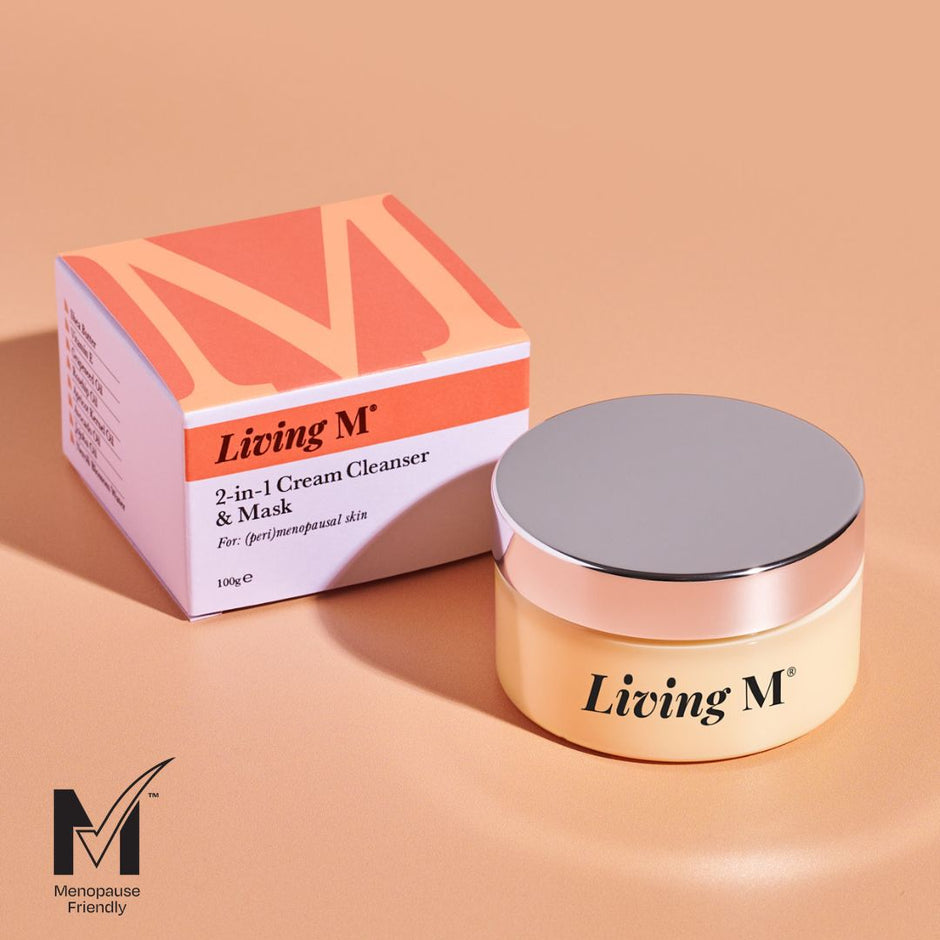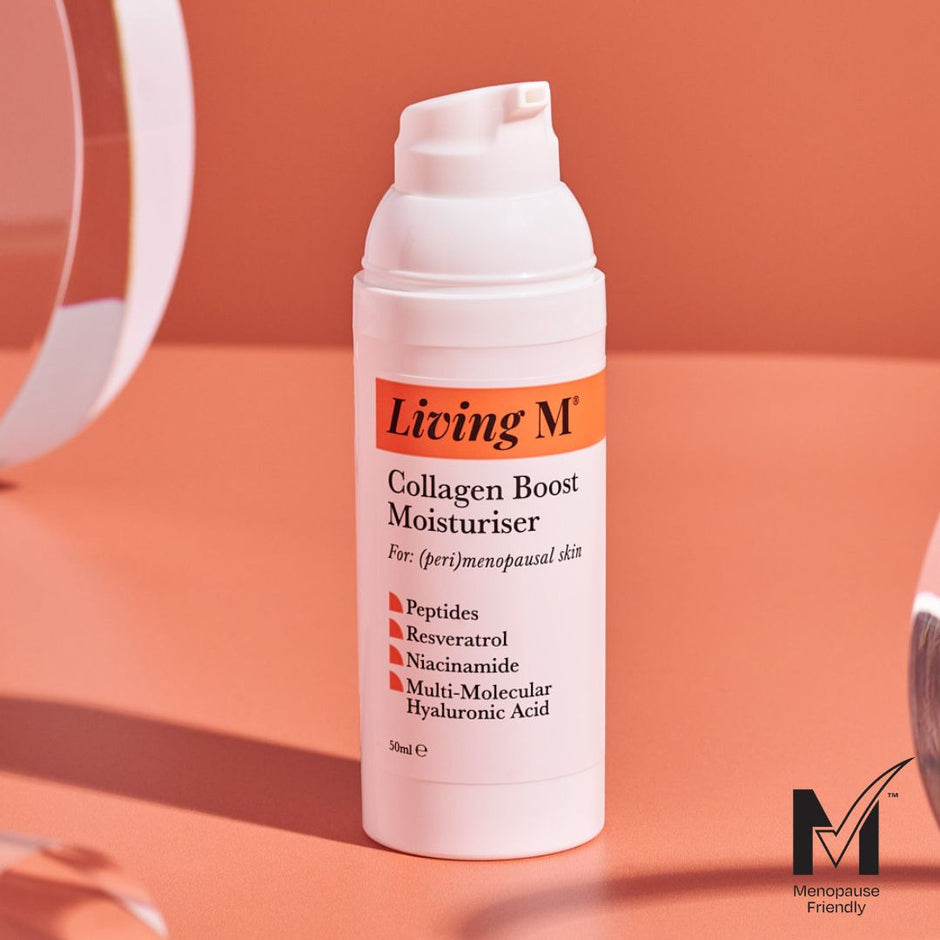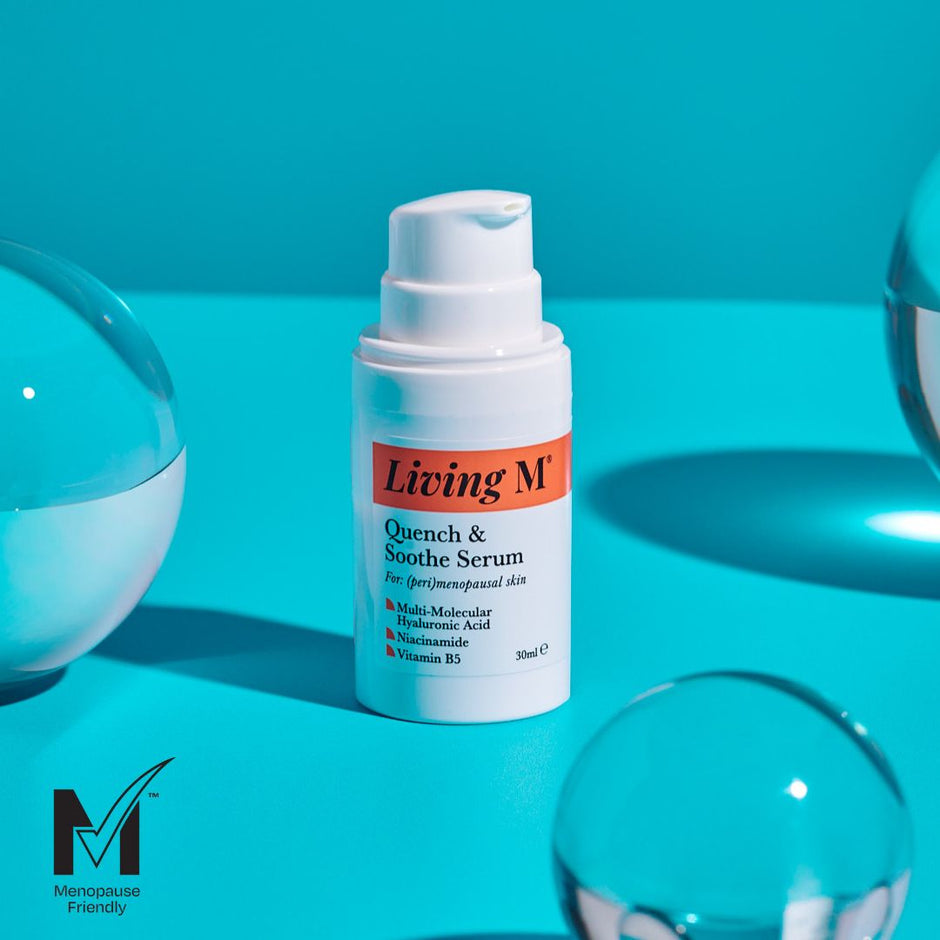What is Collagen?
Think of collagen as skin’s structural support system. It’s the most abundant protein in the body found in bones, muscles, skin, and tendons. Think of it like the glue or the scaffolding that holds skin cells together and makes them strong. It’s responsible for skin’s elasticity and firmness, so when collagen levels start to decline rapidly in menopause, the impact on our skin is significant
What Happens to Collagen Levels in Menopause?
Collagen production is linked to oestrogen levels. As oestrogen levels decline around perimenopause, collagen levels start to decline rapidly. We lose around 30% of collagen in the first 5 years of menopause. Skin becomes thinner and drier, losing its radiance and ability to hold onto water. The skin barrier also becomes weaker which can make it more prone to irritation, sensitivity, and inflammation. You will probably find that products that you have been using for years might not be working anymore for your changing skin needs. What you need is skincare designed with your hormones in mind for a serious collagen boost.
Why Collagen Itself Can’t Help Increase Collagen
There are so many products available that contain actual collagen as an ingredient but when it comes to skincare it’s important to know that it won’t have any effect on the collagen levels in your skin. The reason? - the collagen molecule is simply too large to penetrate the skin, so it just sits on the surface. It’s a nice moisturiser but that is the extent of it. To increase collagen production you need peptides, resveratrol and retinol.
Peptides – Trick Your Skin Into Making More Collagen
Peptides are cutting-edge intelligent skincare ingredients are proven to boost collagen levels in skin. They are short chain amino acids and the building blocks that make up proteins in the body, like collagen and elastin which are responsible for skin’s firmness, texture and tone.
Our skin naturally contains peptides which send messages throughout our body. When we apply peptides topically to the skin they act as messengers, triggering skin cells to make more collagen. This supports skin on multiple levels in midlife, leaving skin firmer, smoother, and plumper. By boosting collagen production, peptides have multiple benefits for menopausal skin.
Skin appears firmer, smoother and plumper.
Skins natural barrier is strengthened allowing skin to better retain moisture and protects against environmental stressors like UV rays and pollution.
Fine lines and wrinkles are reduced.
Skin appears more elastic and supple.
LIVING M COLLAGEN BOOST MOISTURISER contains signal peptides and resveratrol to stimulate collagen production, relieve skin dryness and boost radiance.
Resveratrol - Mimics the Effect of Oestrogen On Skin
Resveratrol, a is a naturally occurring antioxidant found in red grapes, red wine, and some berries. It has many benefits for menopausal skin, including its effects on collagen levels in skin. It can simultaneously reduce the effects of collagen loss on skin as well as helping stimulate and preserve the collagen we have.
Resveratrol is known for its antioxidant properties, which can help neutralize free radicals that can damage skin cells and collagen fibres Resveratrol can also help slow down the degradation of collagen in the skin helping preserve and protect the collagen that you have.
Resveratrol is also a phytoestrogen (which means it mimics the effect of oestrogen on your skin). When applied topically to skin it can support collagen synthesis for plumper, firmer skin.
As a potent antioxidant it is also very effective in reducing the effects of collagen loss on skin. When applied topically to skin, Resveratrol is able to;
Reduce the appearance of redness and irritation. Skin can become increasingly prone to redness, flushing and sensitivity in menopause so you need an antioxidant that will soothe rather than irritate.
Brighten your complexion and reduces the appearance of hyperpigmentation
Help skin maintain normal moisture levels which is key for menopausal skin which becomes much drier due to fluctuating hormone levels.
Smooth skin's texture and reduces the appearance of fine lines and wrinkles
Resveratrol was a must-have ingredient when we created COLLAGEN BOOST MOISTURISER
Retinol – Stimulates Cell Turnover
One of the best-known topical ingredients that can positively affect collagen levels in our skin is retinol. It’s the most proven skincare ingredient there is and the best ingredient to stimulate collagen and effectively reverse signs of collagen loss. If you haven’t already, you need to be incorporating a well-formulated retinol product in your menopausal skincare regime. It’s the gold standard for ageing well and is widely renowned for its transformative effect on skin.
Retinol is able to increase collagen production in skin in 3 ways.
Increasing Collagen Synthesis. Retinol can increase the production of collagen by promoting the activity of fibroblasts, the cells responsible for producing collagen in the skin. It does so by binding to specific receptors in these cells and signalling them to produce more collagen.
Enhancing Cell Turnover: Retinol accelerates the turnover of skin cells, which helps in the removal of old, damaged collagen and stimulates the production of new collagen fibres.
Inhibiting Collagen Breakdown: Retinol can also inhibit the enzymes that break down collagen. By inhibiting these enzymes, retinol helps preserve existing collagen, preventing its degradation, and promoting overall collagen density in the skin.
Retinol can have a transformative effect on skin – regular use can improve skin texture, reduce wrinkles, and enhance overall skin firmness and elasticity.
LIVING M SUPER A RETINOL SLEEP CREAM has been especially created for midlife skin. 0.5% encapsulated time released retinol is carried deep into the skin and released while you sleep, targeting skin cells at a lower level. With an ultra-nourishing blend of skin strengthening ceramides and multi-molecular hyaluronic acid it works with your nightly regenerative cycle. Wake up to a brighter, rejuvenated, more refreshed complexion.




